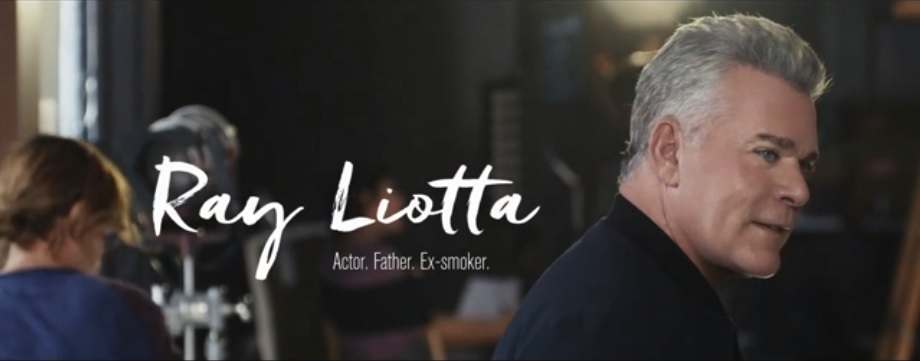Actor Ray Liotta says Pfizer’s Chantix helped him quit smoking and he’s sharing that message in a new commercial for the smoking cessation aid. The format of the ad is similar to Pfizer’s other promotional efforts for Chantix in which Liotta introduces himself and explains how he quit smoking with the help of the drug.
“In the movies, a lot of times I tend to play the tough guy,” says Liotta in the one-minute commercial. “But I wasn’t tough enough to quit on my own – not until I tried Chantix.”
While the ad follows the same narrative previously used by Pfizer in other commercials as part of their “Real People, Real Stories” marketing campaign for Chantix, the current spot has one thing that makes it unique; Liotta is the first celebrity to share his quit smoking story in a Chantix commercial. According to TV advertisement analytics company iSpot.tv, Pfizer has aired 24 of these testimonial-style commercials for Chantix since 2012, spending around $447 million in the process of promoting the drug.
“We hope these ads will inspire smokers to consider making a quit attempt and talk with their healthcare provider,” a Pfizer spokesperson told FiercePharma. The Pfizer representative went on to say that individuals who have used Chantix to quit smoking frequently reach out to the company to express interest in sharing their story. Like those people, Liotta reportedly “wanted to share his story to help others” and Pfizer was only too happy to give him the opportunity to do so.
Like most pharmaceutical marketing efforts, the Chantix campaign featuring Liotta includes many multimedia assets, such as the TV commercial, digital and in-store ads, and social media. Liotta’s TV ad has been running since June and has been aired in the US just over 1,500 times as to-date.
While the quit smoking aid was originally approved by the FDA in 2006, Pfizer had a major win with the regulator ten years later when they allowed the drugmaker to remove a black box warning – first added in 2009 – from the product’s packaging. In a close 10-9 vote by the FDA’s Psychopharmacologic Drugs Advisory Committee and Drug Safety and Risk Management Advisory Committee, the decision to remove the warning label was based on the results of an 8,000-person study which found no link between taking Chantix and the development of psychosis, paranoia and delusions.
However, Pfizer has faced a few setbacks when it comes to its promotion of Chantix. In 2016, a study conducted by researchers from the University of Wisconsin Center for Tobacco Research and Intervention found that Chantix was no better than other quit smoking aids – including nicotine patches and lozenges – at helping people kick the habit. This, combined with adverse event-related lawsuits, has slowed Chantix’ climb to being a blockbuster drug.
To further complicate matters, Pfizer made headlines last week when the drugmaker announced price hikes on 100 of its drug products. Chantix was among the drugs affected, increasing in price by 17 percent to $485 for one month’s supply.












Join or login to leave a comment
JOIN LOGIN